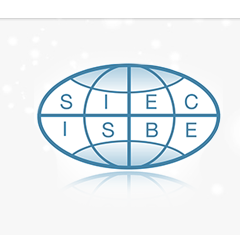Publication Ethics Statement
Conflict of Interest Statement
The IJBE is sponsored by the professional education association known as La Societe Internationale pour l’Enseignement Commercial -The International Society for Business Education. Neither the journal nor the association has any affiliation with or involvement in any organization or entity with any financial interest, or non-financial interest in the subject matter or materials discussed in the journal.
Business Model of the International Journal for Business Education
The business model for the IJBE is an institutional subsidy provided by the professional education association known as La Societe Internationale pour l’Enseignement Commercial -The International Society of Business Education. The journal does not accept outside funding.
Plagiarism Policy
IJBE uses Grammarly as a plagiarism detection tool for all manuscripts accepted for publication.
Review Policy
The International Journal for Business Education is a double-blind, peer-reviewed journal with an international review board. The IJBE currently has an acceptance rate of 30% or less of submitted manuscripts. You can find the IJBE on Cabell's International WhiteList.
Due to the international nature of the journal, two or more editors work together to facilitate the review process. Currently, one editor is based in the United States, and the other is based in Austria.
The editor from outside of the United States handles all manuscripts that originate from the United States. This editor assigns the manuscripts to the appropriate reviewers, handles all correspondence with the author(s) and reviewers, and makes the final decision on acceptance.
The editor from the United States handles manuscripts that originate from outside the United States. Again, this editor assigns the manuscripts to the appropriate reviewers, handles all correspondence with the author(s) and reviewers, and makes the final decision on acceptance.
By following this process, it is possible that one or more of the editors will also have a manuscript published in the journal. Additionally, it is also possible that someone who has submitted a manuscript may be selected to serve as an editorial review board member.
All manuscripts will receive a double-blind review by two or three external reviewers located in multiple countries. If there is no clear decision by the reviewers, the editor will request an additional review from one or two reviewers.
All manuscripts are required to undergo an institutional review process, and a statement to this effect must be included in all submitted manuscripts. The journal utilizes a plagiarism check tool for all manuscripts.
Accepted manuscripts will be published in the next issue of IJBE. The deadline for submission is ongoing. A publication decision will be made within 90 - 120 days of manuscript receipt, when possible. Once accepted and properly formatted, manuscripts will be published electronically on the website.
The use of generative AI and AI-assisted technologies in the International Journal for Business Education editorial process
Due to the rise of generative AI and AI-assisted technologies, the International Journal for Business Education will confidently hold all manuscripts. We will not upload any manuscript into a generative AI tool to avoid violating the confidentiality of any author. The editors, reviewers, and authors will not upload editorial communications into a generative AI tool.
Peer review is essential, and the International Journal for Business Education follows the strictest standards of integrity in the editorial process. Using generative AI to assist in the decision-making process violates these standards. Humans conduct all peer reviews.
AI Author Policy
Authors are allowed to use generative AI and AI-assisted technologies in the pre-submission writing process to improve language usage and readability of the manuscript (e.g., using tools to check spelling and grammar).
Authors using generative AI or AI-assisted tools should only use the tools to improve readability and language usage. The authors should review and edit the final result. Generative AI and AI-assisted tools can generate realistic output that can be incorrect, biased, or incomplete. The author is responsible for their work.
If authors use an AI or AI-assisted tools, they must disclose their use, and the statement will appear in the published work. Place the disclosure at the end of the manuscript just before the references. This disclosure promotes transparency and fosters trust among the authors, reviewers, editors, and readers.
Authors should not list AI and AI-assisted tools as author, co-author, or reference/citation. Authorship of scientific research is a human process.
Authors may use AI to create images that are placed in the manuscript, with appropriate attribution. AI tools may not be used to edit any images.
The only time the use of generative AI or AI-assisted tools beyond basic language and readability issues is if the tool is part of the research design and/or research methodology. It is the author's responsibility to describe the process within the methodology section of the manuscript. The method should be reproducible by other scientists.
Use of AI in the journal peer review process
Reviewers must treat the manuscript as a confidential document. Reviewers must not upload the manuscript into a generative AI tool. The confidentiality requirement extends to any correspondence related to the manuscript between the reviewer and the editor.

